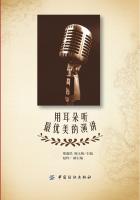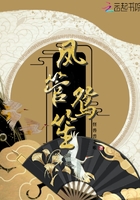[The writer, Helen Keller, became deaf and blind in infancy.]
I have just touched my dog. He was rolling on the grass, with pleasure in every muscle and limb. I wanted to catch a picture of him in my fingers, and I touched him as lightly as I would cobwebs; but lo! his fat body revolved, stiffened, and solidified into an upright position, and his tongue gave my hand a lick! He pressed close to me, as if he were fain to crowd himself into my hand. He loved it with his tail, with his paw, with his tongue. If he could speak, I believe he would say with me that paradise is attained by touch; for in touch is all love and intelligence.
This small incident started me on a chat about hands, and, if my chat is fortunate, I have to thank my good star. In any case, it is pleasant to have something to talk about that no one else has monopolized; it is like making a new path in the trackless woods, blazing trail where no foot has pressed before. I am glad to take you by the hand and lead you along an untrodden way into a world where the hand is supreme. But at the very outset we encounter a difficulty. You are so accustomed to light, I fear you will stumble when I try toguide you through the land of darkness and silence. The blind are not supposed to be the best of guides. Still, though I cannot warrant not to lose you, I promise that you shall not be led into fire or water, or fall into a deep pit. If you will follow me patiently, you will find that "There"s a sound so fine, nothing lives "twixt it and silence," and that there is more meant in things than meets the eye.
My hand is to me what your hearing and sight together are to you. In large measure we travel the same highways, read the same books, speak the same language; yet our experiences are different. All my comings and goings turn on the hand as on a pivot. It is the hand that binds me to the world of men and women. The hand is my feeler with which I reach through isolation and darkness and seize every pleasure, every activity that my fingers encounter. With the dropping of a little word from another"s hand into mine, a slight flutter of the fingers, began the intelligence, the joy, the fullness of my life. Like Job, I feel as if a hand had made me, fashioned me together round about and moulded my very soul.
In all my experiences and thoughts I am conscious of a hand. Whatever moves me, whatever thrills me, is as a hand that touches me in the dark, and that touch is my reality. You might as well say that a sight which makes you glad, or a blow which brings the stinging tears to your eyes, is unreal as to say that those impressions are unreal which I have accumulated by means of touch. The delicate tremble of a butterfly"s wingsin my hand, the soft petals of violets curling in the cool folds of their leaves or lifting sweetly out of the meadow-grass, the clear, firm outline of a face and limb, the smooth arch of a horse"s neck and the velvety touch of his nose- all these, and a thousand resultant combinations, which take shape in my mind, constitute my world.
Helen Keller, in The World I Live in (Hodder and Stoughton).
Author.-Helen Keller, born in 1880 at Tuscumbia, in Alabama. She lost her sight and hearing from scarlet fever when under two years of age. She learnt the finger alphabet, to read and write, and later to speak, becoming a student at Radcliffe College, and, in 1904, B.A. She published The Story of my Life in 1903, The World I Live In, in 1905.
General Notes.-What is meant by " blazing trail " ? Is the hand of ablind and deaf person really all that hearing and sight are to us ? Weigh the question. A blind person once said that his notion of scarlet was the sound of a trumpet. Can a person born blind ever dream ? Are there spiritual melodies for those born deaf ? Recall the poem of " The Blind Men and the Elephant. " Beethoven became deaf and yet composed.















